The global momentum of bicentenary preparations is building through the Americas.
Artistic expressions, thoughtful presentations on the past and present, and other activities give a glimpse of how the continent’s diverse populations are readying themselves for the upcoming historic anniversary of the Bab’s birth.
During this period, neighborhoods across Canada are experiencing a new impulse of energy. In one neighborhood of Vancouver, devotional gatherings as well as educational programs for children and youth are increasing in these months.
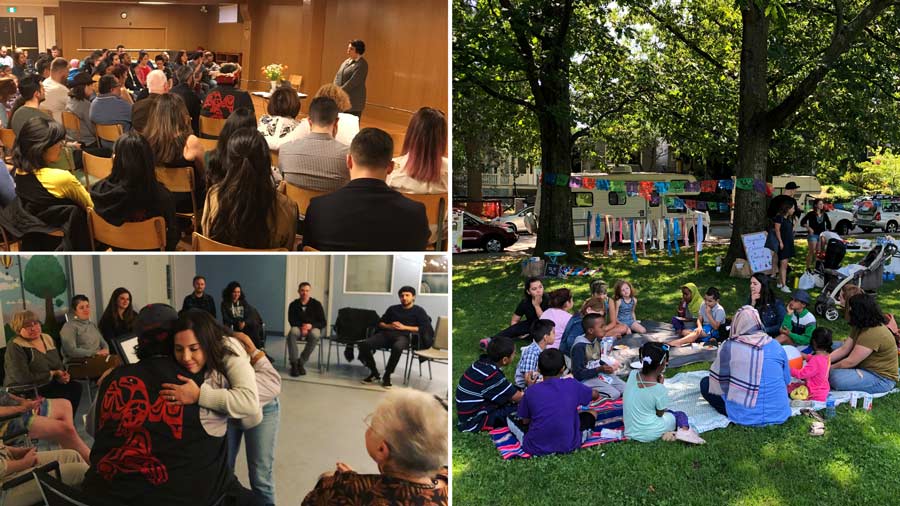
In a diverse neighborhood of Vancouver, Canada, residents are intensifying their community building efforts in the lead-up to the bicentenary. The photos on the left show community gatherings in the neighborhood, and the photo on the right shows a recent children’s festival that brought together local families.
“As a team we are seeing every moment before this bicentenary as precious,” says Hoda Toloui-Wallace, who lives in the area. “Our orientation is to reach out to as many friends to become protagonists in the betterment of society. There is a real spirit of joy in seeing more people channel their energies and find their place on a path of service.”
Across the United States, communities are drawing growing numbers to local celebrations and other activities. Many places held special summer school gatherings, placing a particular focus on the life and teachings of the Bab. Energizing conferences have allowed participants to reflect on ways to generously serve their community and intensify this effort in the lead-up to the October bicentenary. Artistic endeavors are also underway through the creation of paintings, craft projects, and film screenings.
In Buenos Aires, Argentina, the Baha’is are putting a special focus on the history of the Faith in the city. A series of events is planned for September to commemorate the centenary of the arrival of Martha Root, a notable early Baha’i, in the Argentine capital. Also, on the day of the bicentenary of the birth of the Bab in October, a special gathering will be held at the resting place of May Maxwell, a prominent early American Baha’i who died in Buenos Aires in 1940.
“The six of us are very excited about it. We are enjoying writing the monologues,” says Bahiyyih Maani Hessari. “We’re nervous for the play, but we’re also very happy and willing to do our best.”
This deep connection with history also found expression in Vila Velha, Brazil, where the local community is planning a drama featuring monologues of six early followers of the Bab.
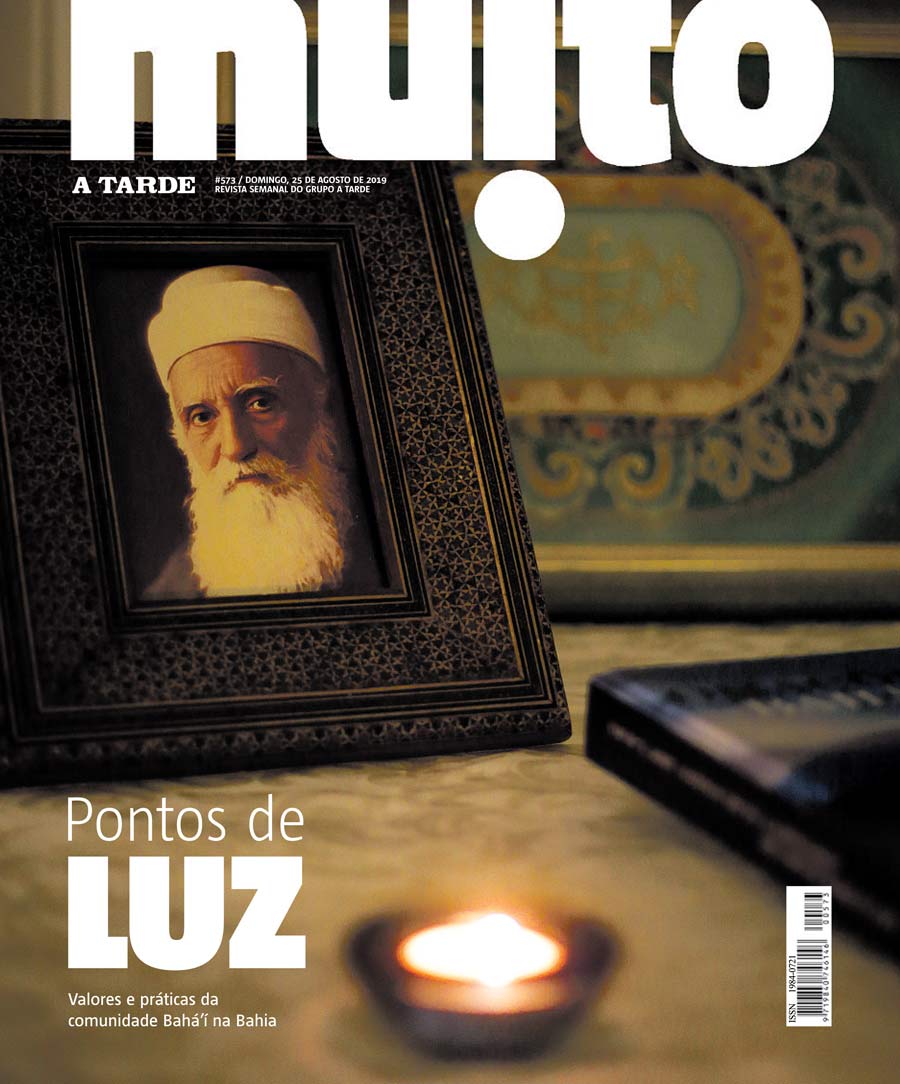
A Tarde, a major newspaper in Salvador, Brazil, featured the Baha’i community in its most recent Sunday magazine. The magazine includes a 6-page cover article about the Baha’is of Salvador, their history from when Martha Root first visited a century ago, their present efforts to contribute to life in Salvador, and their plans for the upcoming bicentenary celebrations.
Also in Brazil, A Tarde, a major newspaper in Salvador, featured the Baha’i community in its latest Sunday magazine. The special section featured a 6-page cover article about the Baha’is of Salvador, their history from when Ms. Root first visited a century ago, their present efforts to contribute to life in Salvador, and their plans for the upcoming bicentenary celebrations.
Communities throughout the Americas have been holding special gatherings about the lives and teachings of the Bab and Baha’u’llah. For example, in Kingston, Jamaica, an arts workshop to create and present different creative works was held. In Ecuador, people in the country’s southern region recently met for a three-day camp focused on themes inspired by the Bab and Baha’u’llah’s vision for humanity. In La Bomba, Costa Rica, there are a variety of efforts such as a weekly devotional gathering that includes sharing accounts from the lives of the Bab and early heroes and heroines of the Baha’i Faith. In Santa Cruz, Bolivia, youth are meeting to learn and tell stories about the life of the Bab.
Elsewhere, along the continent, four Baha’i Houses of Worship radiate the spirit of the bicentenary period, acting as a focal point for preparations. A gathering at the Temple in Agua Azul, Colombia, brought together dozens of community residents to discuss different themes from the life of the Bab. In all of the Houses of Worship in the Americas—in Chile, Colombia, Panama, and the United States—devotional gatherings will be held during the bicentenary holy days and plans are underway in some for live online broadcasts of the celebrations.
Designated accounts on Instagram, Facebook, and YouTube are regularly being updated with images and videos in honor of the upcoming celebrations and those held in 2017 to mark the 200th anniversary of the birth of Baha’u’llah.


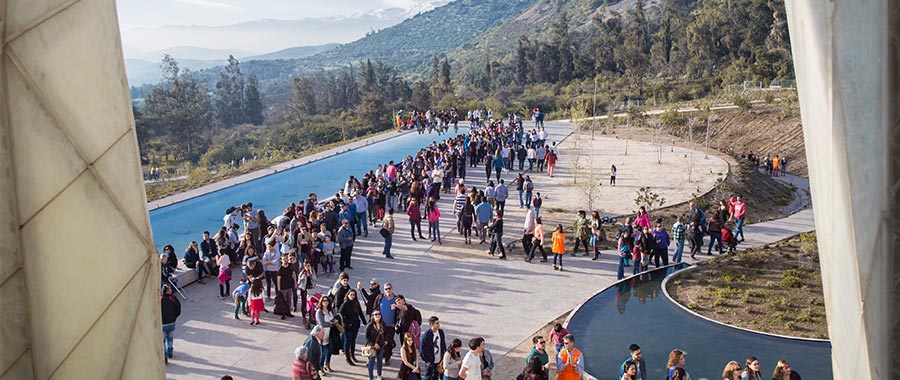

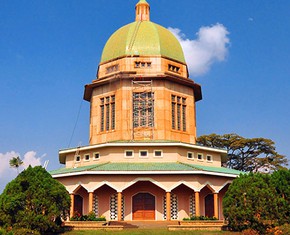
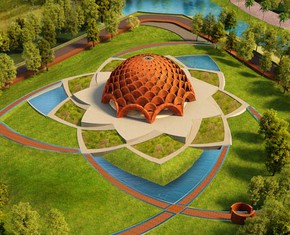
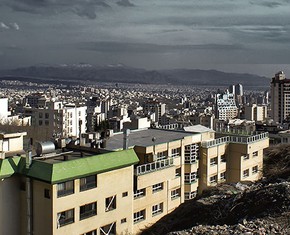









Comments
Sign in or create an account
Continue with Googleor